
Front_Office_Operations
.pdf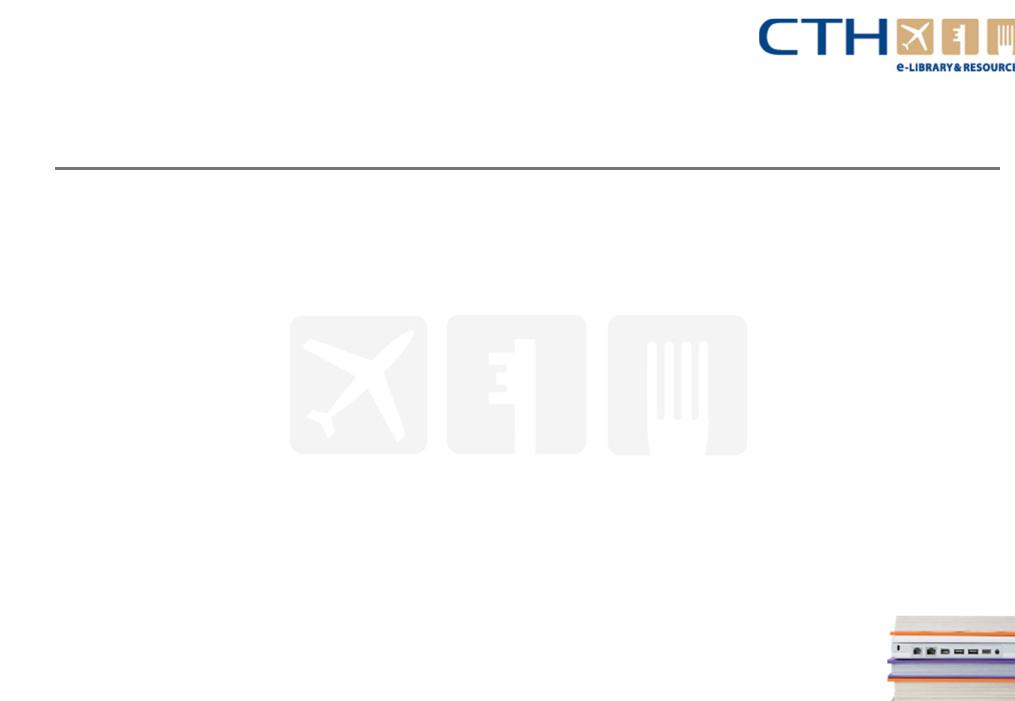
Chapter 4 – Check-out procedures
Other cash transactions
4.2 Visitors paid outs (VPOs) or disbursements
Visitor Paid Outs (VPOs) or disbursements are cash payments made by front office on behalf of guests. Examples such as amounts paid to accept cash on delivery (COD) parcels for a guest; or a staff member being sent out to purchase 'emergency' supplies (toiletries / medications) for a guest; outside service providers being used to supply services requested by a guest (e.g. a florist or baby-sitting service).
Such expenses are generally handled through the main cashier's float. As with a petty cash system, a VPO or Guest Disbursement voucher (similar to a petty cash voucher) will be filled out, stating the name and room number of the guest, details and amount of the expenditure, and the signature of the guest (or person receiving the money). Where possible, a purchase receipt should also be attached.
The amount of the disbursement can then be posted to the guest's account, and the voucher placed in the cashier's float, to be exchanged for cash (or logged as 'paid in' to management with other cash takings) at the end of the day or shift.
VPOs are normally pre-arranged with guests, so that the hotel doesn't find itself paying out amounts that the guest has not authorised - and may refuse to be responsible for. (This may also mean
that the facility is not extended to chance guests.)
www.cthresources.com |
Page 261 |
|
www.cthawards.com |
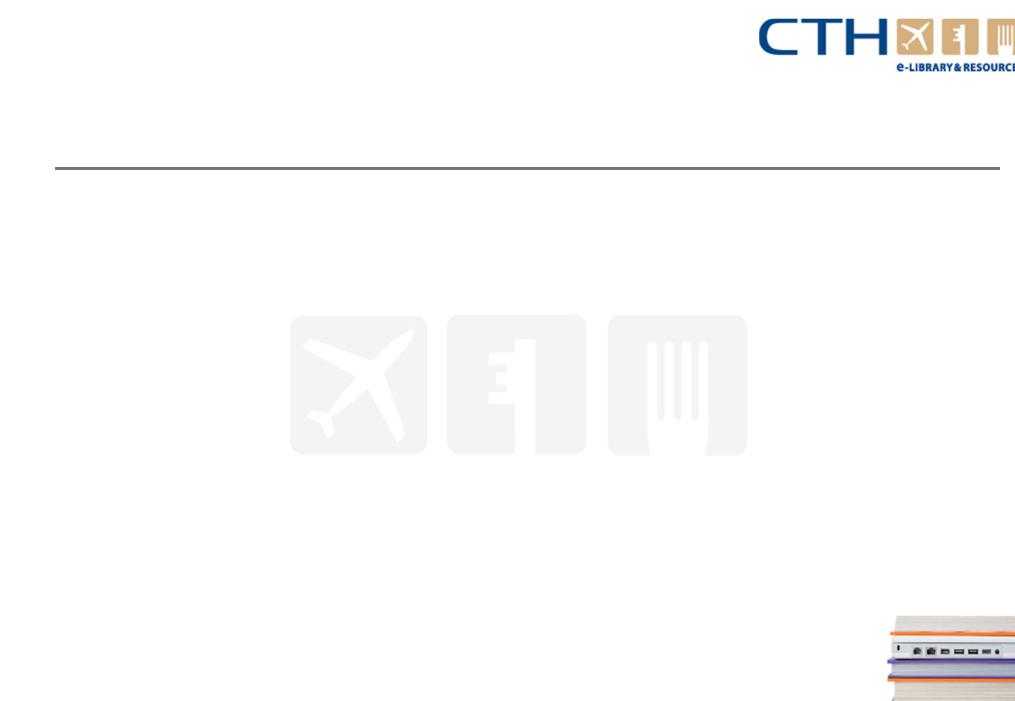
Chapter 4 – Check-out procedures
Other cash transactions
4.3 Foreign currency exchange
Large hotels which have a high proportion of foreign trade may offer foreign exchange facilities - both as a value-adding service to overseas guests, and as a potential source of revenue for the hotel (through beneficial exchange rates and the charging of commission).
●The hotel may rent space to a foreign exchange bureau (bureau de change), which can both buy foreign currency (i.e. exchange it for pounds sterling) and sell foreign currency (e.g.. exchange pounds sterling for other currencies required by guests).
●The hotel may only buy foreign currency (and exchange it for pounds sterling), if a guest wants other currencies, he will be referred to a nearby bureau de change or bank. Most hotels only change notes and foreign currency traveller's cheques, since coins are too costly to handle and may not be accepted by banks.
www.cthresources.com |
Page 262 |
|
www.cthawards.com |
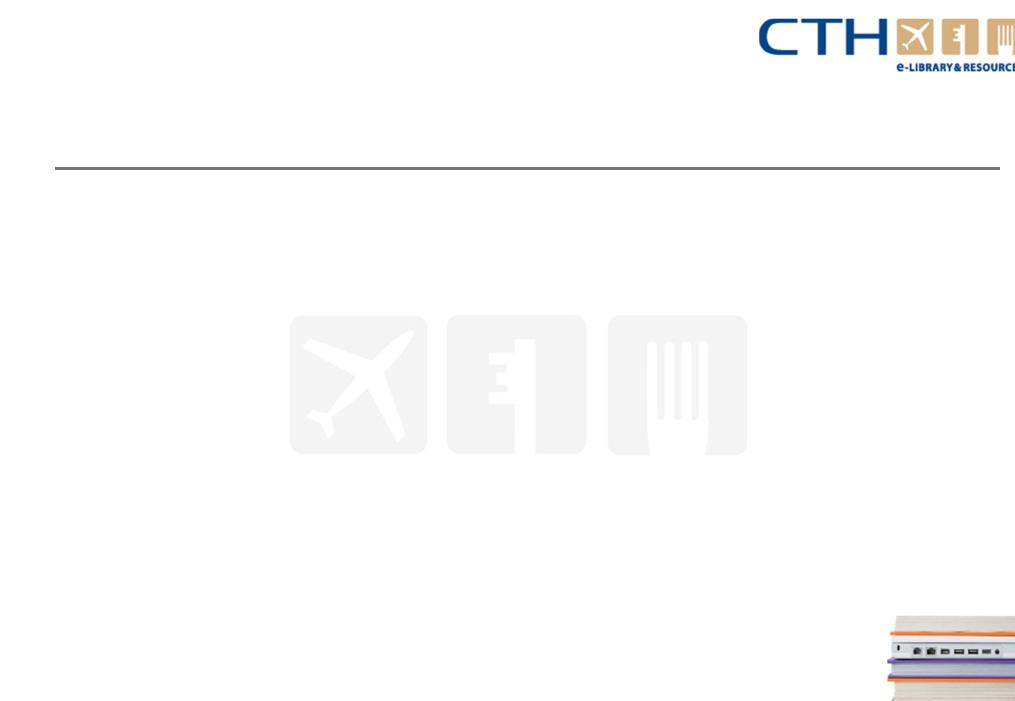
Chapter 4 – Check-out procedures
Other cash transactions
4.3 Foreign currency exchange continued…
The exchange rate is not fixed by law, so the hotel can offer whatever price it wishes in order to make a profit on the transaction. The hotel will find out what the central exchange rate is on a given day (from the Internet, or by notification from its bank), and set a slightly more advantageous rate (as determined by management). The hotel's rates can then be listed at the reception or cashier's desk, for the information of overseas guests.
Guests may wish to exchange a particular amount of a foreign currency (e.g.US$100), or may wish to purchase a particular amount in pounds sterling, and staff will need to be able to make the appropriate calculation.
●When converting from a foreign currency into £ sterling, you divide the amount by the rate of exchange (ROE): so, for example, US$300 / 1.85 = £162.16.
●When converting £ sterling into foreign currency, you multiply (x) the amount by the ROE: so, for example, £100 x 1.42 = $142.
The hotel may charge a commission (e.g.. 2% of the total transaction value) for the service
www.cthresources.com |
Page 263 |
|
www.cthawards.com |
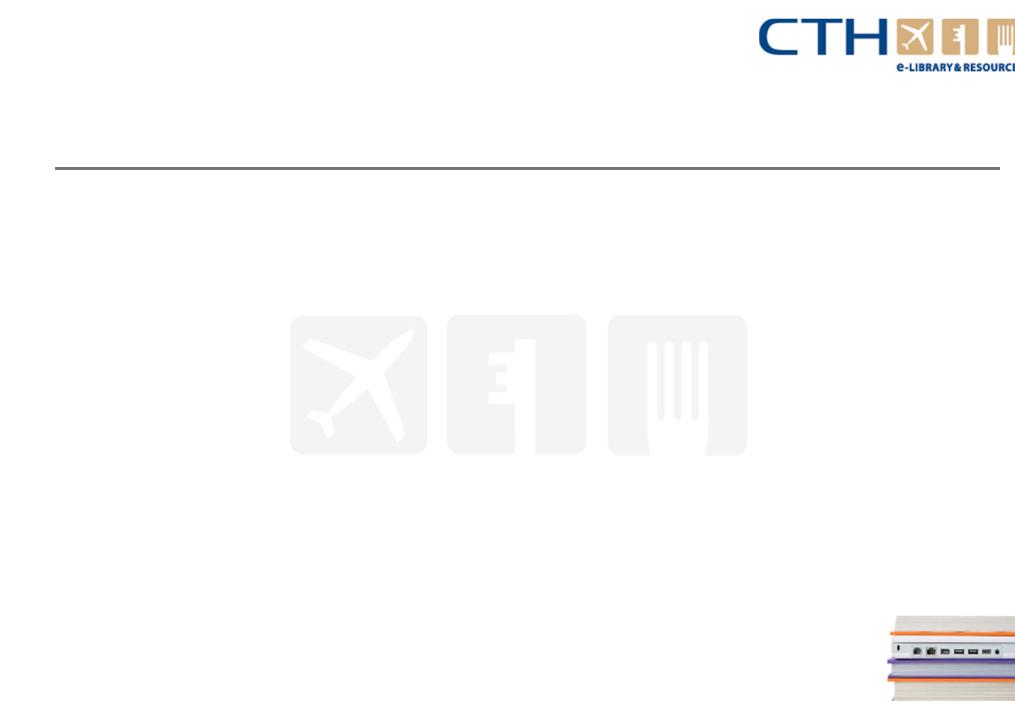
Chapter 4 – Check-out procedures
Other cash transactions
4.3 Foreign currency exchange continued…
In a computerised system, there are special programmes for calculating, recording and receipting such transactions: staff simply add updated exchange rates (may be automatically 'synchronised' from the internet or head office systems) and transaction amounts.
Most hotels issue a receipt for currency exchange transactions, stating the guest's room number, the exchange rate used, the amount of currency 'bought', the amount of sterling provided in exchange, plus any commission charged. The record retained enables the cashier to balance the amounts of foreign currency to be paid in to the bank, minimising the risk of fraud.
Foreign currency should be banked as soon as possible to avoid the risk of the hotel's losing money because of fluctuations in the exchange rate.
www.cthresources.com |
Page 264 |
|
www.cthawards.com |

Chapter 4 – Check-out procedures
Security issues
5.Security issues
5.1 Safe handling of cash and other forms of payments
www.cthresources.com |
Page 265 |
|
www.cthawards.com |
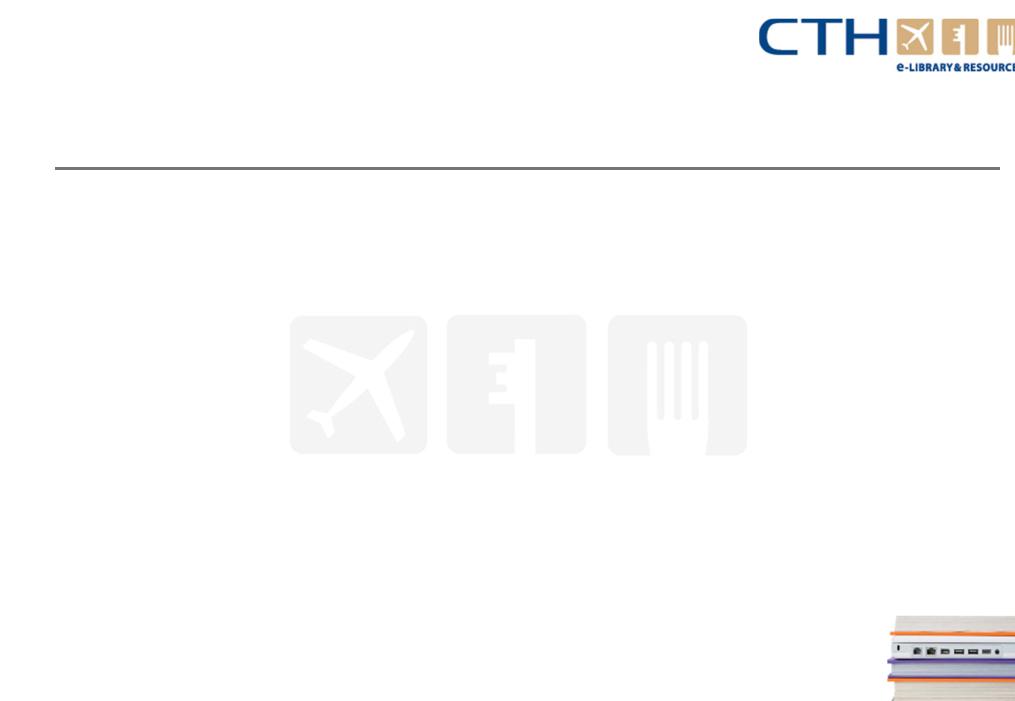
Chapter 4 – Check-out procedures
Security issues
There are significant security issues to handling cash and credit cards. There may be risks of:
●Theft of cash left unsecured or unattended (by staff, guests or other people with access to the premises)
●Armed robbery of the premises, if it is known that Significant amounts of cash are kept there
●Fraud of various kinds: the use of counterfeit banknotes, forged cheques or stolen credit cards; staff processing 'cash back' transactions on debit cards but keeping the money for themselves; staff altering guest account ledgers and keeping the difference between logged payments and actual payments for themselves; and etc.
www.cthresources.com |
Page 266 |
|
www.cthawards.com |
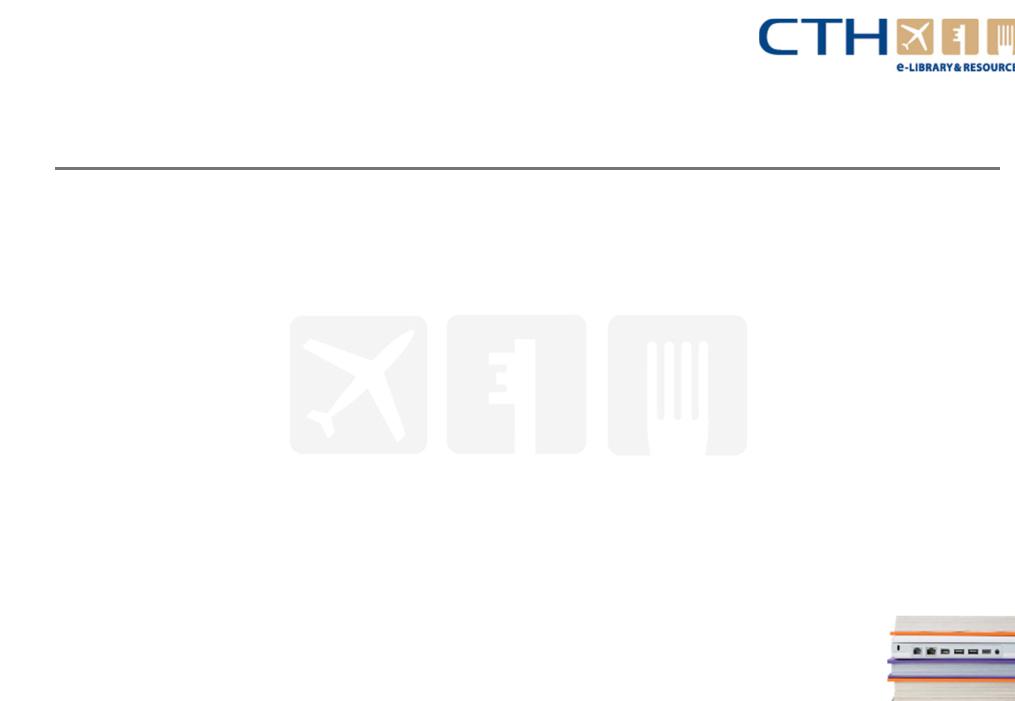
Chapter 4 – Check-out procedures
Security issues
5.1 Safe handling of cash and other forms of payment
●If substantial amounts of money are involved, it may be necessary to transfer cash and cheques from front office to a back-office safe, immediately following peak check-out times and at intervals during the day.
●All 'standing' cash used in front office operations - such as cashier's floats and petty cash should be kept in a safe, ideally in separate cash boxes, when not in use.
●If cash is kept in cash boxes or drawers at front office, these should be kept locked and out of sight of the general public when not in use. If cash is kept in a cash register, this must also be locked and attended at all times.
●Cash handling and counting should always be done out of sight of the general public, if possible. Two or more responsible members of staff should count cash takings, when required, and reconcile the amounts with what is expected from accounting records (e.g.. cash payments made and received, the cash ‘float amount, etc). Cash should be kept in a secure, locked safe until collection by a security company or members of staff for transportation to the bank.
www.cthresources.com |
Page 267 |
|
www.cthawards.com |
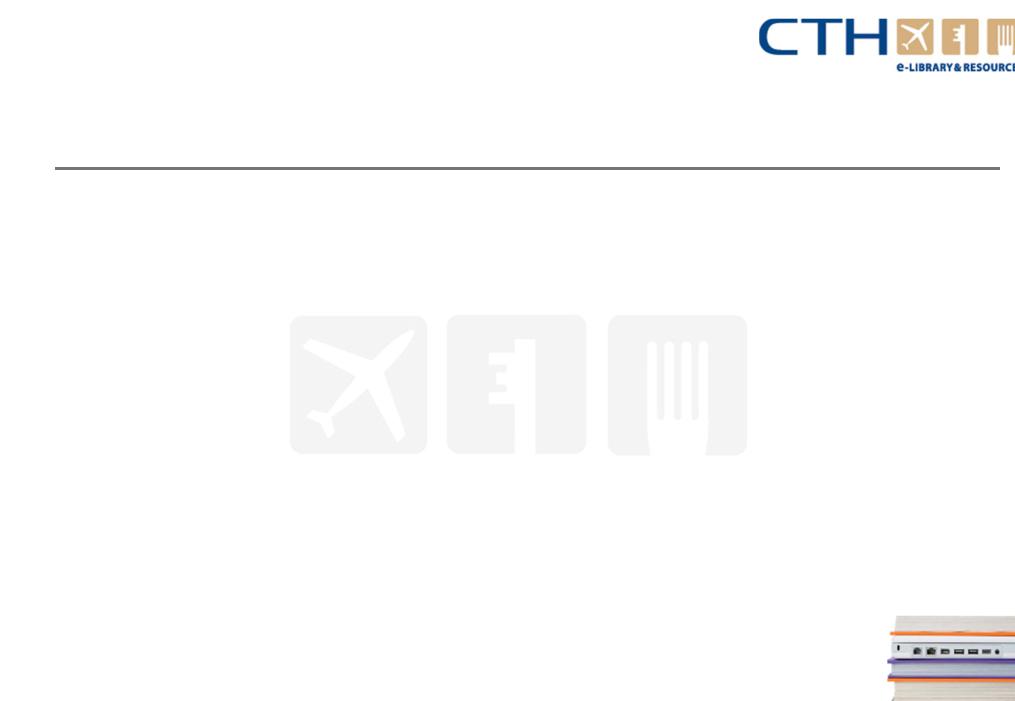
Chapter 4 – Check-out procedures
Security issues
5.1 Safe handling of cash and other forms of payment continued…
●The number of people having access to safes and lock-boxes (and their keys or access codes) should be kept to the minimum required for efficient customer service. Authorised individuals must not hand keys or reveal access codes to other people – however busy they may be at check-out time! Under no circumstances should keys or notes of pass codes be left 'lying around' (even in desk drawers or filing cabinets). If safe or lock-box keys are lost, the matter must be reported to a relevant manager, who must make arrangements for locks to be changed as soon as possible.
●Where possible, staff should attempt to limit the amount of cash on the premises (and there may be notices posted to this effect, to deter would-be thieves), by encouraging cheque or credit-card payments; transferring excess cash into safes; banking cash as soon as possible; and avoiding making large payments (e.g.staff wages) in cash.
www.cthresources.com |
Page 268 |
|
www.cthawards.com |
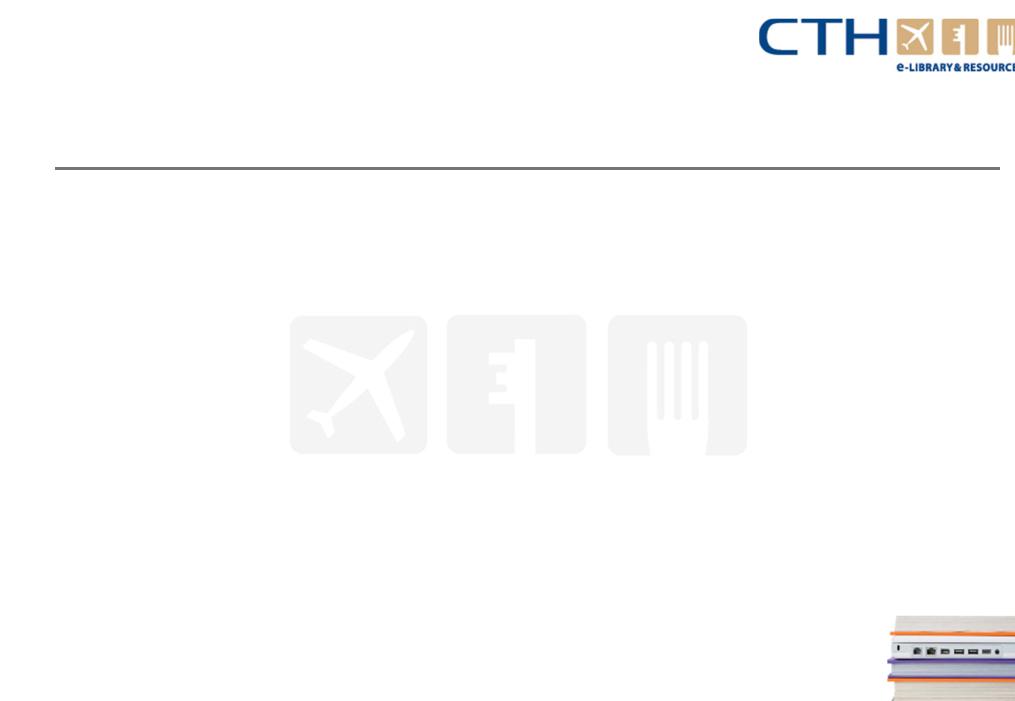
Chapter 4 – Check-out procedures
Security issues
5.1 Safe handling of cash and other forms of payment continued…
●If the hotel operates a cash register, records should be kept to show which member of staff used the till at a particular time and date and ideally (in computerised systems) who undertook a particular transaction. Cashing up should be done as soon as possible after the close of cashier services each day, the cash drawer removed, and the empty till drawer left open (to prevent unnecessary damage by would-be thieves). The same protocols apply to the security of cash drawers and boxes (e.g.. holding cash floats and petty cash).
●Guest credit card details should be kept secure at all times: unauthorised parties – including hotel staff - may use stolen credit card numbers (together with known names, expiry dates and authorisation numbers) to make Internet or telephone purchases (for which signatures are not required). This will mean restricting access to guest files (whether manual or computerised) which include such details. Documents referring to credit card payments (e.g.. confirmations of deposits or billing receipts) should identify the credit card by the last four digits only, avoiding giving further details. Signed hotel copies of credit card vouchers/receipts should be kept securely. If old-fashioned 'imprinter' machines are used for credit card transactions, the cashier should offer to destroy any carbon paper used in voucher preparation (which carries card numbers and signatures).
www.cthresources.com |
Page 269 |
|
www.cthawards.com |

Chapter 4 – Check-out procedures
Security issues
●All procedures for checking the validity of payments should be followed. Front office staff must learn to identify suspected counterfeit bills and fake foreign currency. They must get used to going through a series of checks of cheque, traveller's cheque and card transactions: verifying names, checking expiry dates and signatures, looking for signs of tampering and so on. Credit card fraud is particularly widespread, and cashiers need to look for signs that the person using the card is not the real owner: payments made on the basis of an invalid card will not be honoured by the issuing organisation.
www.cthresources.com |
Page 270 |
|
www.cthawards.com |
